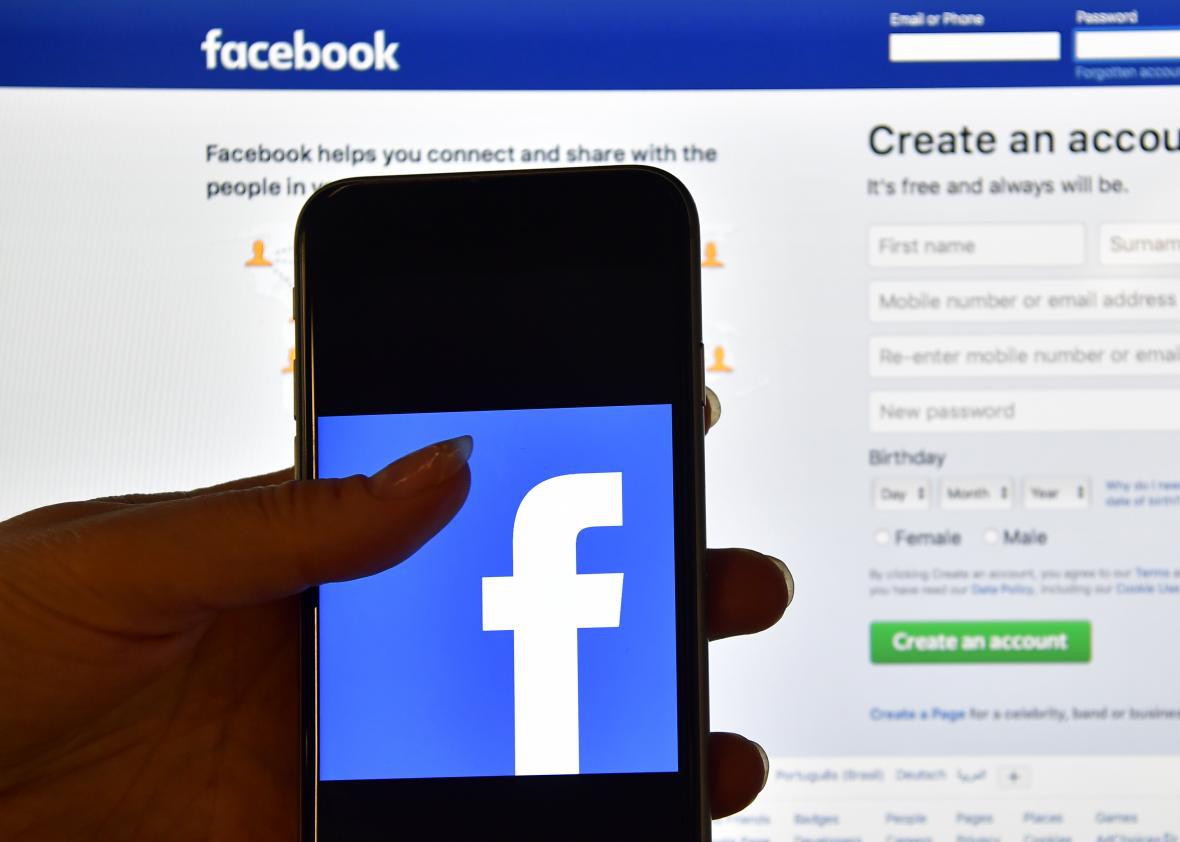Courtesy of the Trump administration, visa applicants to the United States will now have to fill out a questionnaire that asks about their social media and biographical information going back years, Reuters reported Thursday.
According to Reuters, the new procedures allow consular officials stationed at U.S. embassies worldwide to demand visa applicants’ social media handles over the preceding five years along with previous passport numbers, phone numbers, email addresses, employment history, travel history, and past addresses stretching back 15 years. The Office of Management and Budget green-lit the questionnaire last month via an emergency approval process that—for now—gives the form a six-month lifespan instead of the typical three years.
Applicants are technically free to withhold the information from U.S. officials at their personal discretion. But the form, which can be viewed here, states that “failure to provide this information may delay or prevent the processing of an individual visa application.”
Visa applicants will apparently be quizzed about their social media game in cases where “such information is required to confirm identity or conduct more rigorous national security vetting,” an anonymous State Department official told Reuters on Thursday. But the department had previously stated that more stringent forms of identification would affect only those “who have been determined to warrant additional scrutiny in connection with terrorism or other national security-related visa ineligibilities,” Reuters reported last month, citing a State Department notice to the Federal Register.
The move comes after a campaign in which then-candidate Donald Trump promised “extreme vetting” of people seeking to enter the United States—without really specifying what those heightened background checks would look like. Members of terrorist organizations like the Islamic State have proven adept at using social media to galvanize attacks, recruit adherents to their cause, and build their global brand. Other assailants like Tashfeen Malik—a U.S. permanent resident from Pakistan who along with her husband killed 14 people in a 2015 ISIS-inspired attack in San Bernardino, California—had previously used social media in ways that suggested terrorist sympathies. Malik’s Facebook activity supporting violence against the U.S. wasn’t caught by State Department officials when she entered the country through the K-1 visa program in July 2014. (Because her activity came mostly in the form of direct messages or posts made under strict privacy settings, however, it’s unclear whether the new procedures asking visa applicants for handles and other public account information would’ve flagged Malik’s sentiments either.)
In January, CNN’s Jake Tapper reported that the fledgling administration was considering “asking foreign visitors to disclose all websites and social media sites they visit, and to share the contacts in their cell phones.” Then, in February, Politico revealed that Trump policy advisers were flirting with mandating similar social media disclosures from Chinese visitors. And as recently as April, the Wall Street Journal reported, the White House was weighing a draconian measure that would’ve forced visitors to the U.S.—including short-term vacationers—to hand over passwords to their social media accounts as well as subjected them to questions about their ideology.
The Obama administration also rolled out an optional provision in its final days asking visa waiver entrants to the country to supply social media account information for platforms including Facebook, Instagram, LinkedIn, and Google+, Politico reported last December. But Trump’s form targeting applicants before a visa has been granted is a further step down the path of social media vetting.
The OMB approved the new procedures over the objections of academic groups and educational officials, according to Reuters. Those critics charge that the questionnaire will likely dampen interest among international students—already inconvenienced by Trump’s executive orders restricting foreign travel from several Muslim-majority nations—who might otherwise have chosen to study stateside. More than 50 such groups, representing a spectrum of academic disciplines as well as college admissions administrators, complained that the new procedures would generate “uncertainties and confusion” and “unacceptably long delays in processing” in a letter sent to State Department officials last month. The new form may also discourage scientists from entering the U.S. to work, naysayers worry.
And it remains murky whether the new procedures will actually do much to clamp down on individuals with potential ties terrorism seeking entry into the country. Immigration experts are skeptical. Mostly, they say, the questions will annoy and flummox less savvy visa applicants, potentially deterring individuals from pursuing residency in the U.S. “The United States has one of the most stringent visa application processes in the world,” Babak Yousefzadeh, a San Francisco-based attorney and president of the Iranian American Bar Association, told Reuters. “The need for tightening the application process further is really unknown and unclear.”
